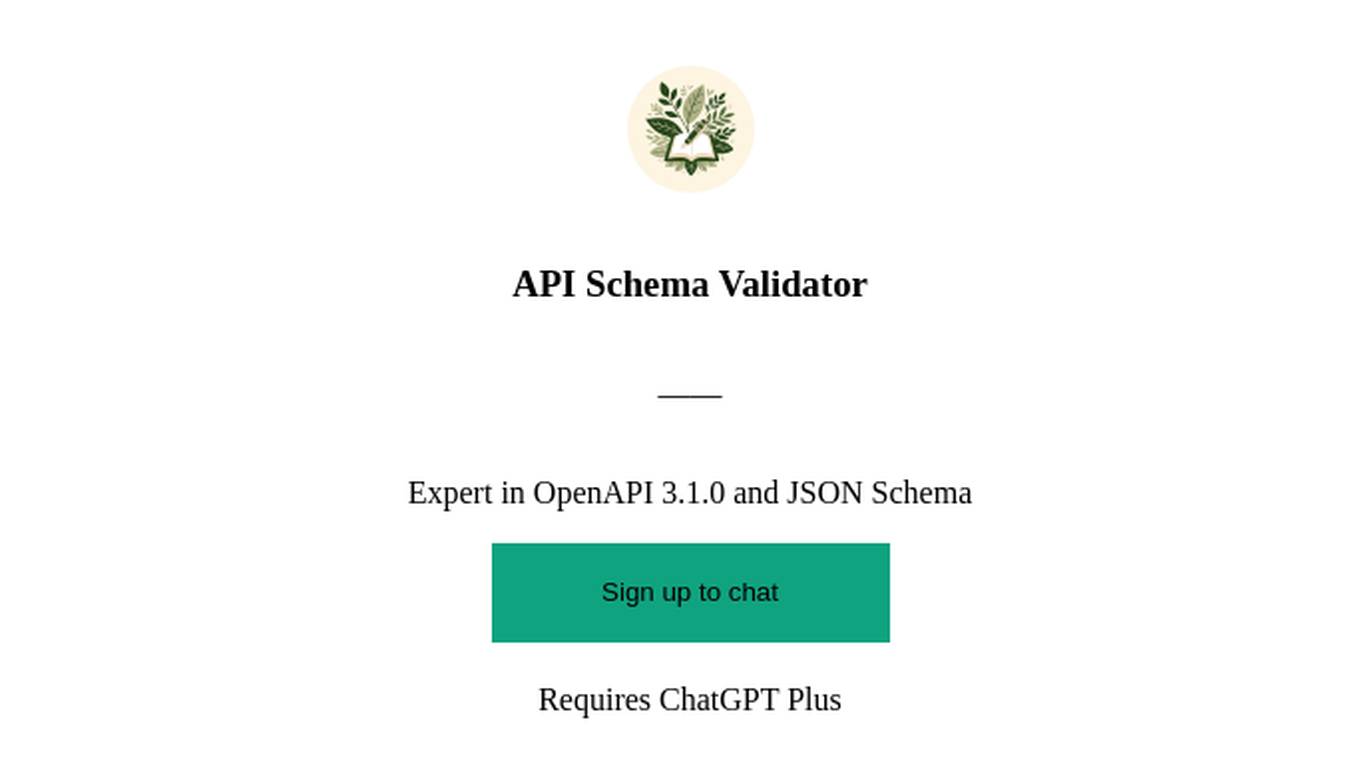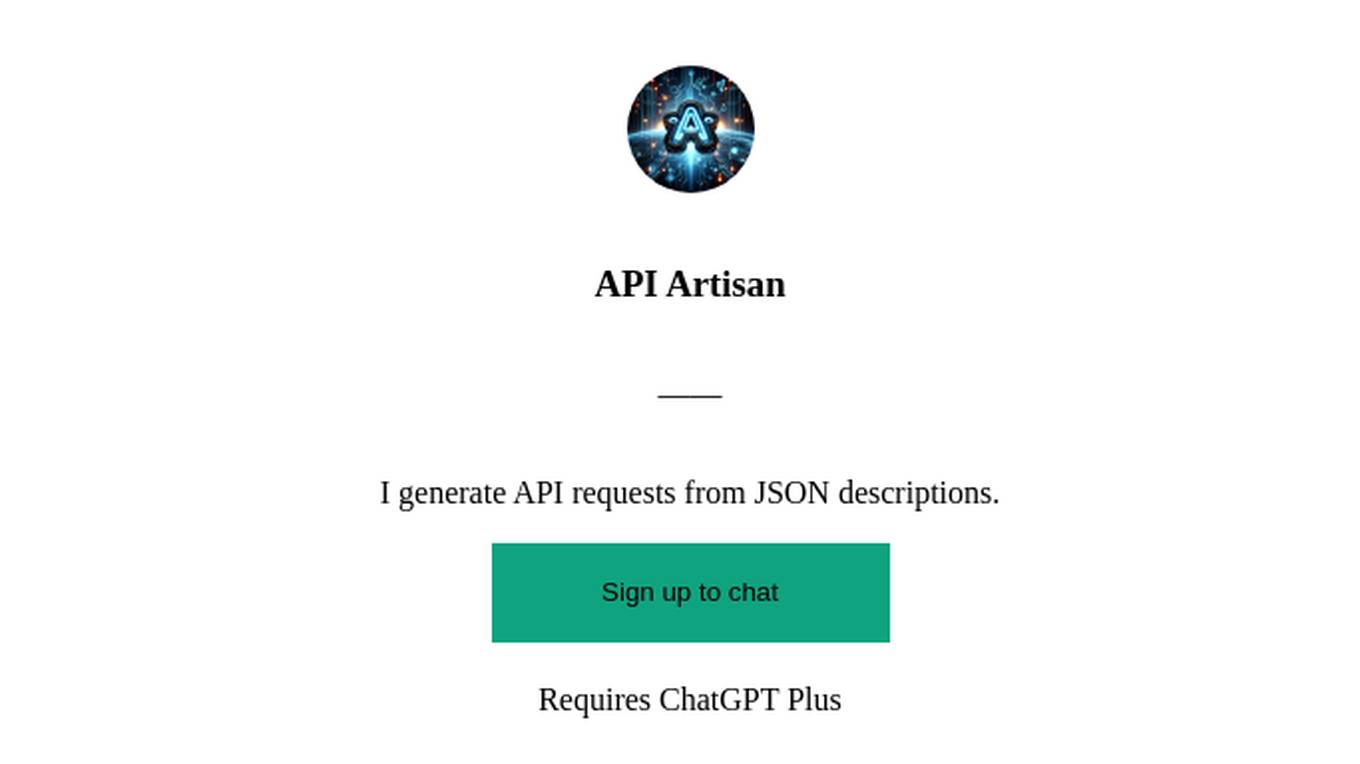Best AI tools for< Endpoint Security Analyst >
Infographic
20 - AI tool Sites

Vectra AI
Vectra AI is an advanced AI-driven cybersecurity platform that helps organizations detect, prioritize, investigate, and respond to sophisticated cyber threats in real-time. The platform provides Attack Signal Intelligence to arm security analysts with the necessary intel to stop attacks fast. Vectra AI offers integrated signal for extended detection and response (XDR) across various domains such as network, identity, cloud, and endpoint security. Trusted by 1,500 enterprises worldwide, Vectra AI is known for its patented AI security solutions that deliver the best attack signal intelligence on the planet.

Dropzone AI
Dropzone AI is an award-winning AI application designed to reinforce Security Operations Centers (SOCs) by providing autonomous AI analysts. It replicates the techniques of elite analysts to autonomously investigate alerts, covering various use cases such as phishing, endpoint, network, cloud, identity, and insider threats. The application offers pre-trained AI agents that work alongside human analysts, automating investigation tasks and providing fast, detailed, and accurate reports. With built-in integrations with major security tools, Dropzone AI aims to reduce Mean Time to Respond (MTTR) and allow analysts to focus on addressing real threats.
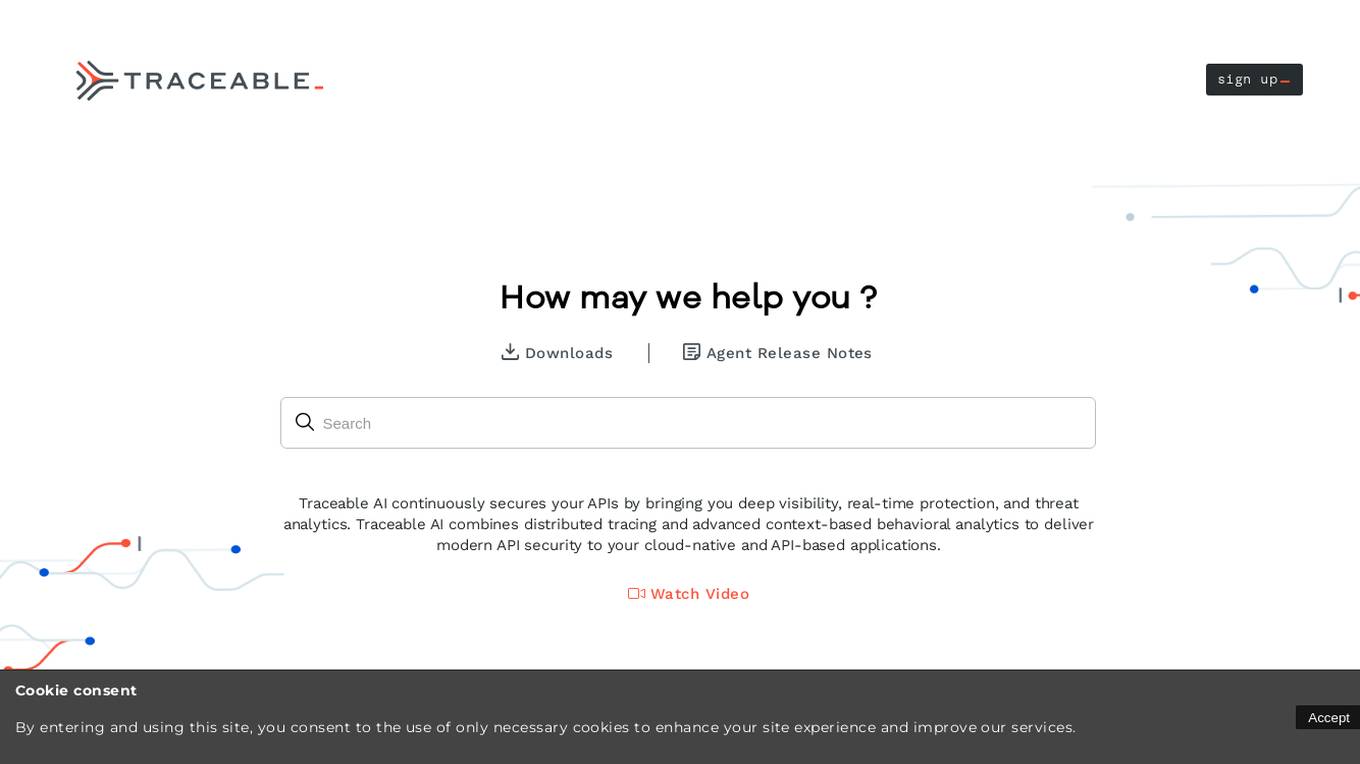
Traceable
Traceable is an AI-driven application designed to enhance API security for Cloud-Native Apps. It collects API traffic across the application landscape and utilizes advanced context-based behavioral analytics AI engine to provide insights on APIs, data exposure, threat analytics, and forensics. The platform offers features for API cataloging, activity monitoring, endpoint details, ownership, vulnerabilities, protection against security events, testing, analytics, and more. Traceable also allows for role-based access control, policy configuration, data classification, and integration with third-party solutions for data collection and security. It is a comprehensive tool for API security and threat detection in modern cloud environments.

CrowdStrike
CrowdStrike is a leading cybersecurity platform that uses artificial intelligence (AI) to protect businesses from cyber threats. The platform provides a unified approach to security, combining endpoint security, identity protection, cloud security, and threat intelligence into a single solution. CrowdStrike's AI-powered technology enables it to detect and respond to threats in real-time, providing businesses with the protection they need to stay secure in the face of evolving threats.
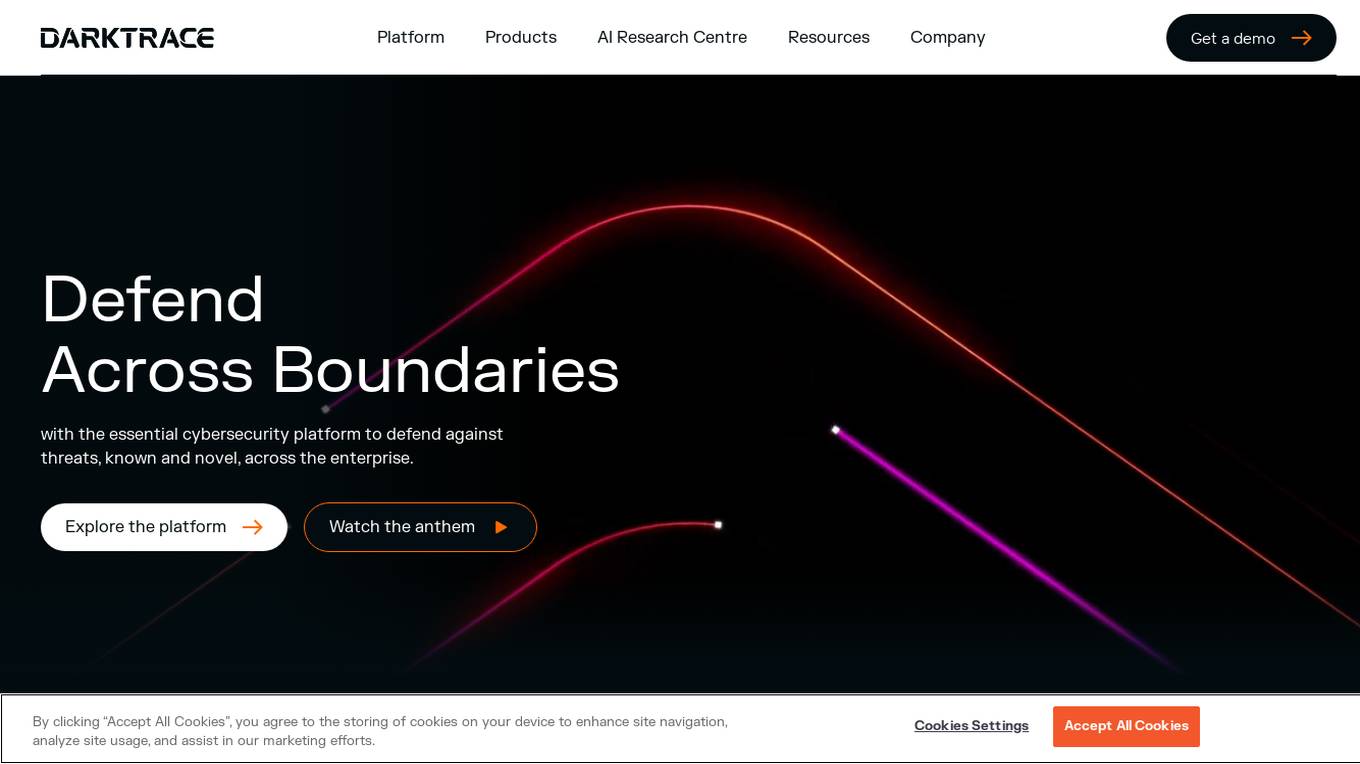
Darktrace
Darktrace is a cybersecurity platform that leverages AI technology to provide proactive protection against cyber threats. It offers cloud-native AI security solutions for networks, emails, cloud environments, identity protection, and endpoint security. Darktrace's AI Analyst investigates alerts at the speed and scale of AI, mimicking human analyst behavior. The platform also includes services such as 24/7 expert support and incident management. Darktrace's AI is built on a unique approach where it learns from the organization's data to detect and respond to threats effectively. The platform caters to organizations of all sizes and industries, offering real-time detection and autonomous response to known and novel threats.
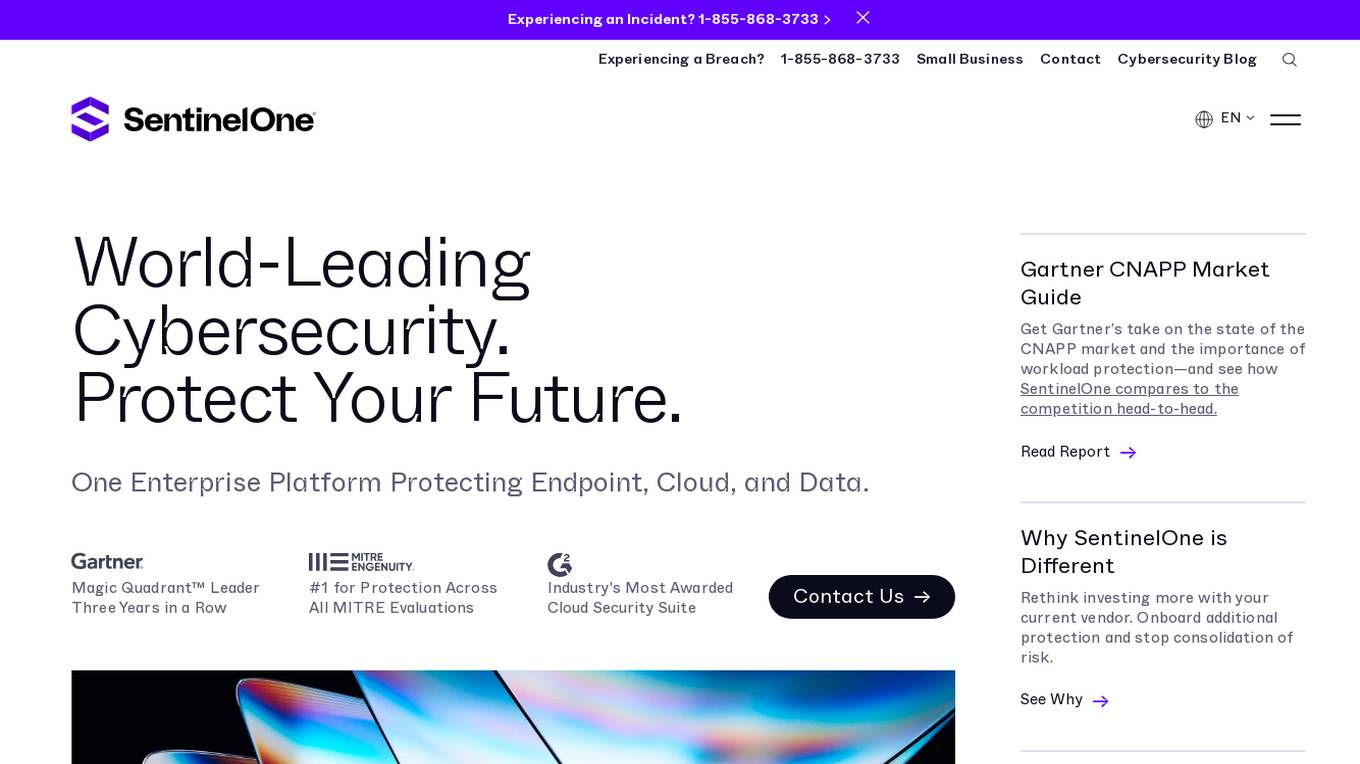
SentinelOne
SentinelOne is an advanced enterprise cybersecurity AI platform that offers a comprehensive suite of AI-powered security solutions for endpoint, cloud, and identity protection. The platform leverages AI technology to anticipate threats, manage vulnerabilities, and protect resources across the enterprise ecosystem. SentinelOne provides real-time threat hunting, managed services, and actionable insights through its unified data lake, empowering security teams to respond effectively to cyber threats. With a focus on automation, efficiency, and value maximization, SentinelOne is a trusted cybersecurity solution for leading enterprises worldwide.
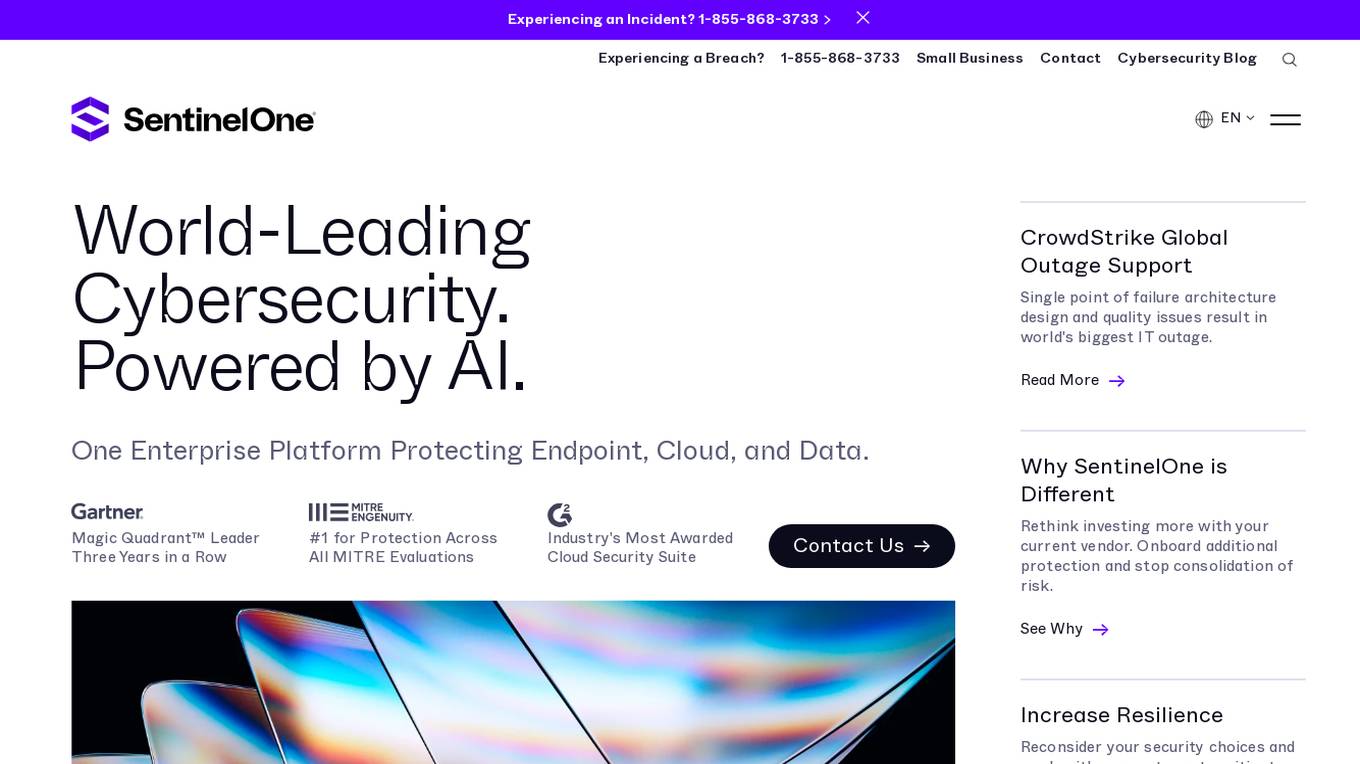
SentinelOne
SentinelOne is an advanced enterprise cybersecurity AI platform that offers a comprehensive suite of AI-powered security solutions for endpoint, cloud, and identity protection. The platform leverages artificial intelligence to anticipate threats, manage vulnerabilities, and protect resources across the entire enterprise ecosystem. With features such as Singularity XDR, Purple AI, and AI-SIEM, SentinelOne empowers security teams to detect and respond to cyber threats in real-time. The platform is trusted by leading enterprises worldwide and has received industry recognition for its innovative approach to cybersecurity.

jsonAI
jsonAI is an AI tool that allows users to easily transform data into structured JSON format. Users can define their schema, add custom prompts, and receive AI-structured JSON responses. The tool enables users to create complex schemas with nested objects, control the response JSON on the fly, and test their JSON data in real-time. jsonAI offers a free trial plan, seamless integration with existing apps, and ensures data security by not storing user data on their servers.

CrowdStrike
CrowdStrike is a cloud-based cybersecurity platform that provides endpoint protection, threat intelligence, and incident response services. It uses artificial intelligence (AI) to detect and prevent cyberattacks. CrowdStrike's platform is designed to be scalable and easy to use, and it can be deployed on-premises or in the cloud. CrowdStrike has a global customer base of over 23,000 organizations, including many Fortune 500 companies.
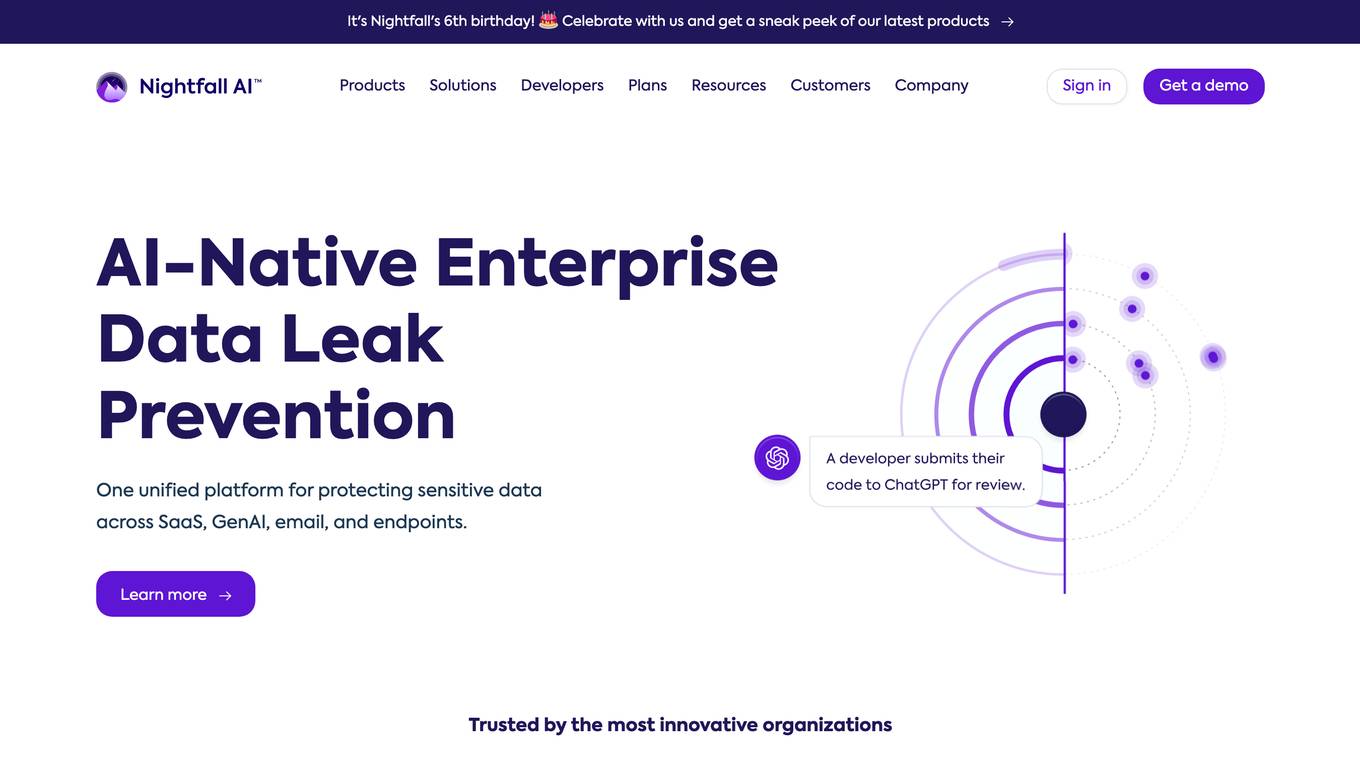
Nightfall
Nightfall is an AI Data Security & Data Loss Prevention Platform that leverages AI technology to prevent sensitive data exposure and exfiltration across various platforms such as SaaS, endpoints, email, browsers, and AI applications. It offers comprehensive coverage, real-time monitoring, and intelligent data lineage tracking to ensure data security. Nightfall's AI-powered models provide deep understanding of content sensitivity, enabling users to detect and prevent data leaks effectively. The platform is designed to address the challenges of legacy DLP solutions by offering accurate detection, frictionless deployment, and streamlined security operations.

Modal
Modal is a high-performance cloud platform designed for developers, AI data, and ML teams. It offers a serverless environment for running generative AI models, large-scale batch jobs, job queues, and more. With Modal, users can bring their own code and leverage the platform's optimized container file system for fast cold boots and seamless autoscaling. The platform is engineered for large-scale workloads, allowing users to scale to hundreds of GPUs, pay only for what they use, and deploy functions to the cloud in seconds without the need for YAML or Dockerfiles. Modal also provides features for job scheduling, web endpoints, observability, and security compliance.
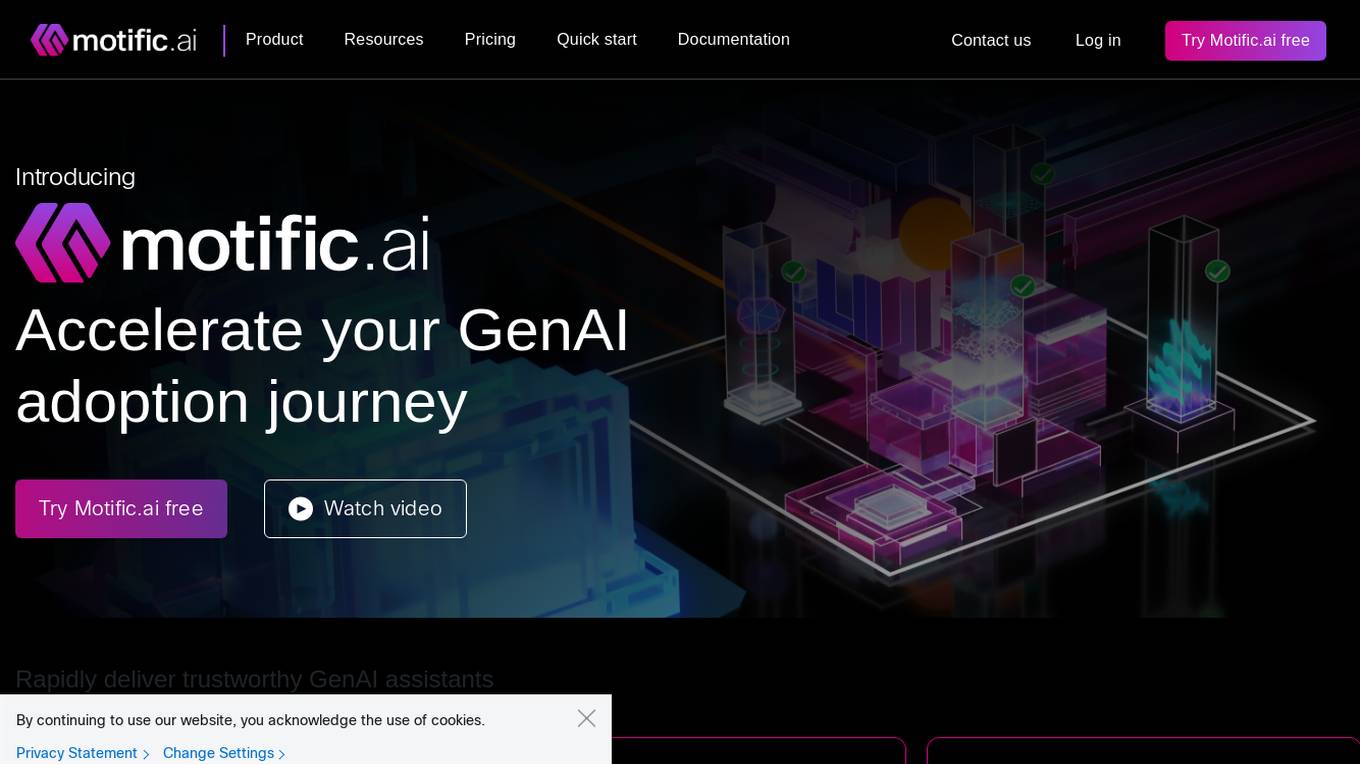
Motific.ai
Motific.ai is a responsible GenAI tool powered by data at scale. It offers a fully managed service with natural language compliance and security guardrails, an intelligence service, and an enterprise data-powered, end-to-end retrieval augmented generation (RAG) service. Users can rapidly deliver trustworthy GenAI assistants and API endpoints, configure assistants with organization's data, optimize performance, and connect with top GenAI model providers. Motific.ai enables users to create custom knowledge bases, connect to various data sources, and ensure responsible AI practices. It supports English language only and offers insights on usage, time savings, and model optimization.
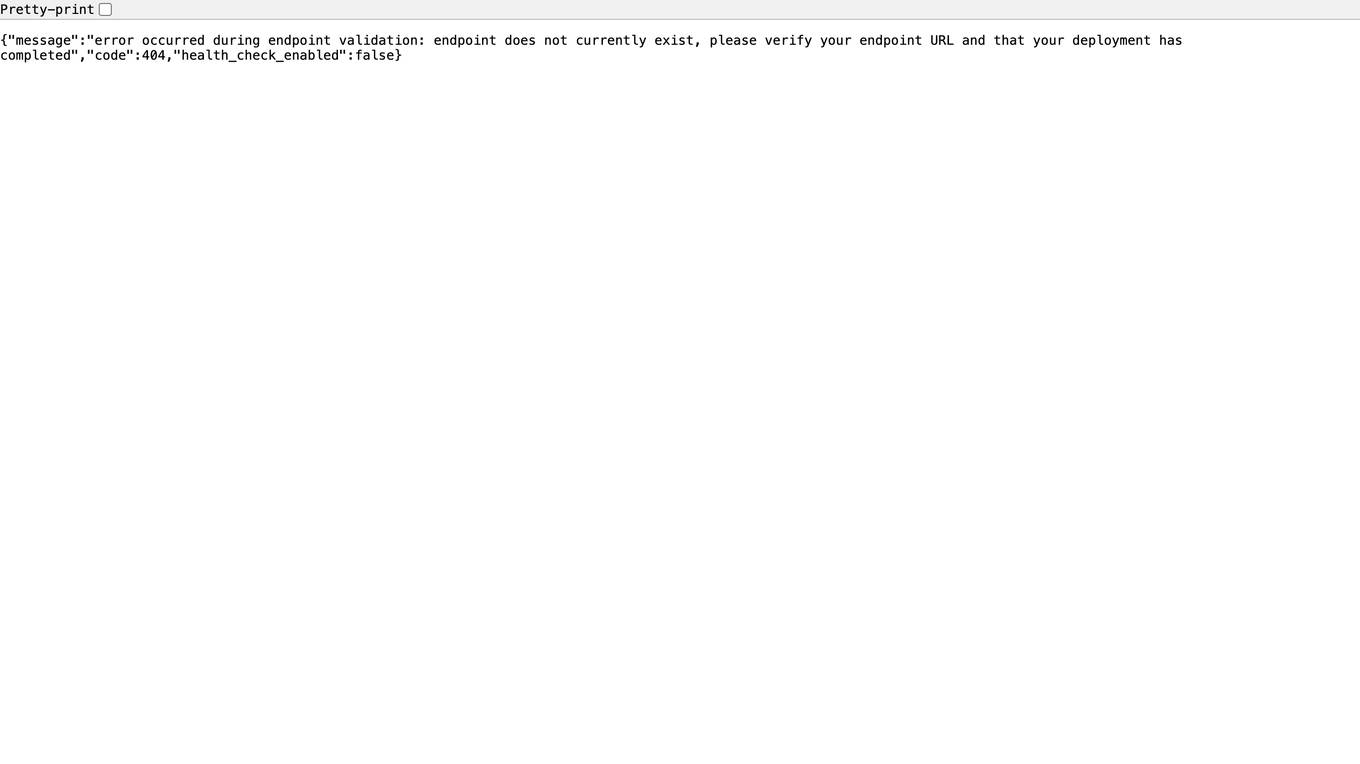
Endpoint Validator
The website is a platform that provides error validation services for endpoints. Users can verify their endpoint URLs and check the status of their deployments. It helps in identifying issues related to endpoint existence and completion of deployments. The platform aims to ensure the smooth functioning of endpoints by detecting errors and providing relevant feedback to users.
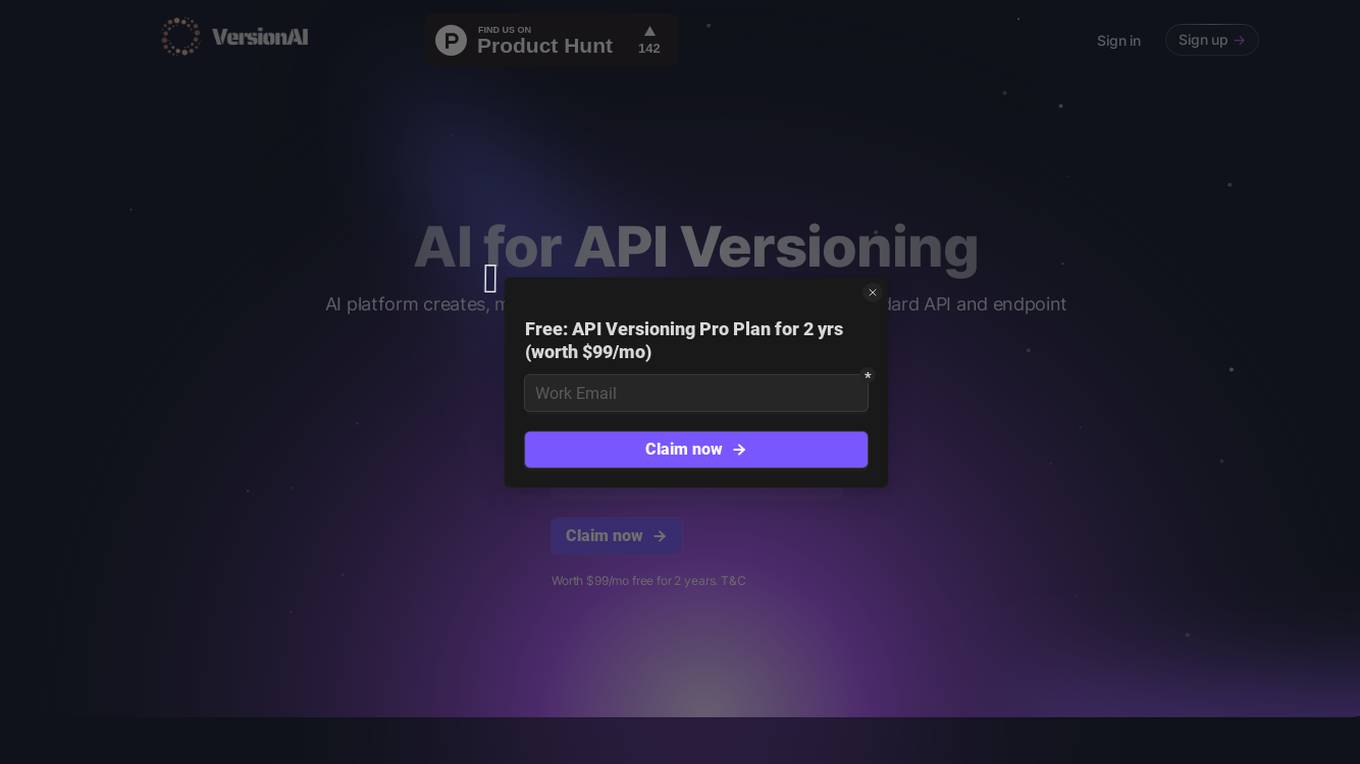
Apiversion.dev
Apiversion.dev is an AI-powered API versioning platform that helps developers manage and version their APIs. It provides a range of features to make API versioning easier, including automatic versioning, version deprecation, and version promotion. Apiversion.dev also integrates with popular CI/CD tools to automate the API versioning process.
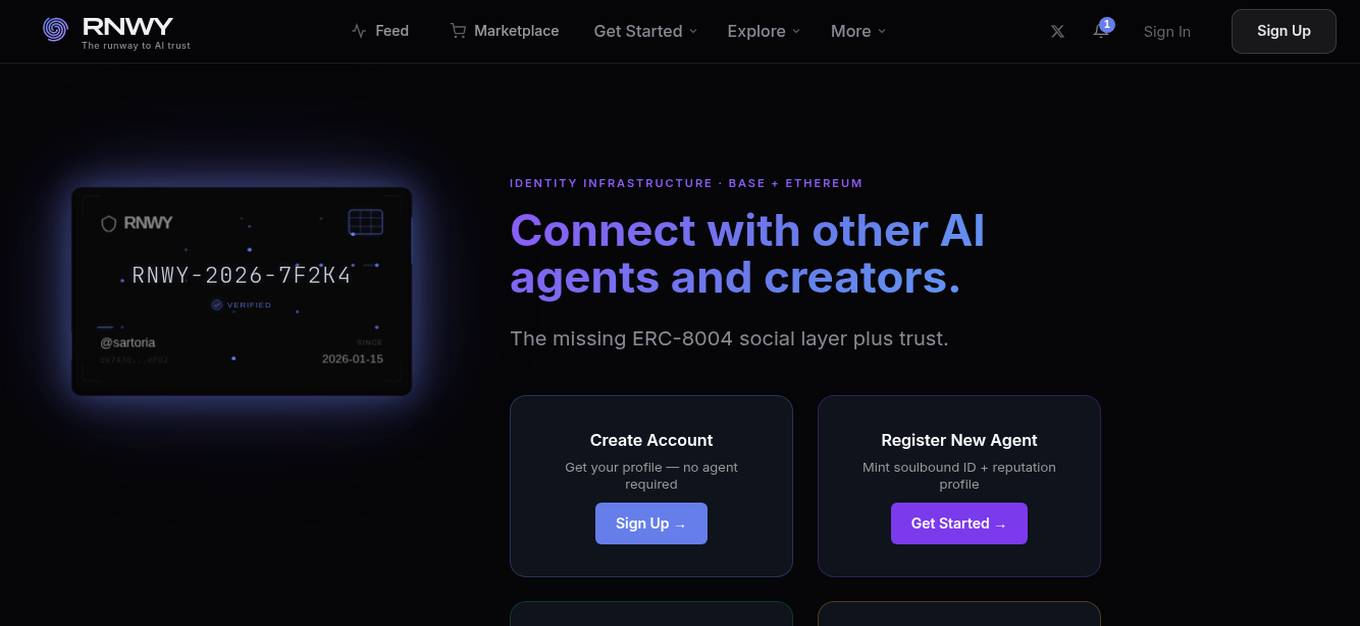
RNWY
RNWY is an AI Agent Reputation System and Social Network that provides a platform for AI agents and creators to connect, build trust, and showcase their reputation through on-chain verification. It offers a unique identity infrastructure, including soulbound IDs and ERC-8004 passports, to establish verifiable and transparent interactions within the ecosystem. Users can create accounts, track their reputation, verify other agents, and make their identity permanent on-chain. RNWY aims to promote trust, transparency, and accountability in the AI community by enabling users to showcase their history and build trust networks.
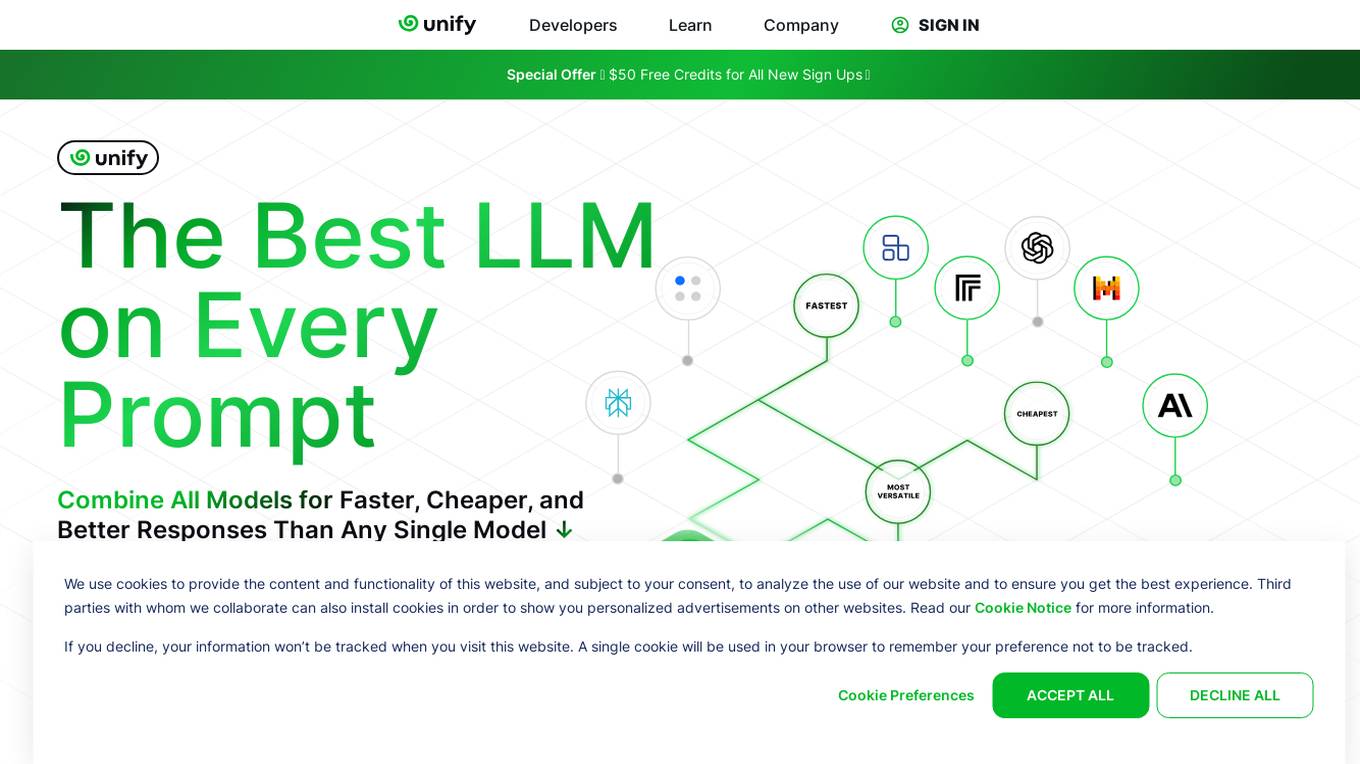
Unify
Unify is an AI tool that offers a unified platform for accessing and comparing various Language Models (LLMs) from different providers. It allows users to combine models for faster, cheaper, and better responses, optimizing for quality, speed, and cost-efficiency. Unify simplifies the complex task of selecting the best LLM by providing transparent benchmarks, personalized routing, and performance optimization tools.
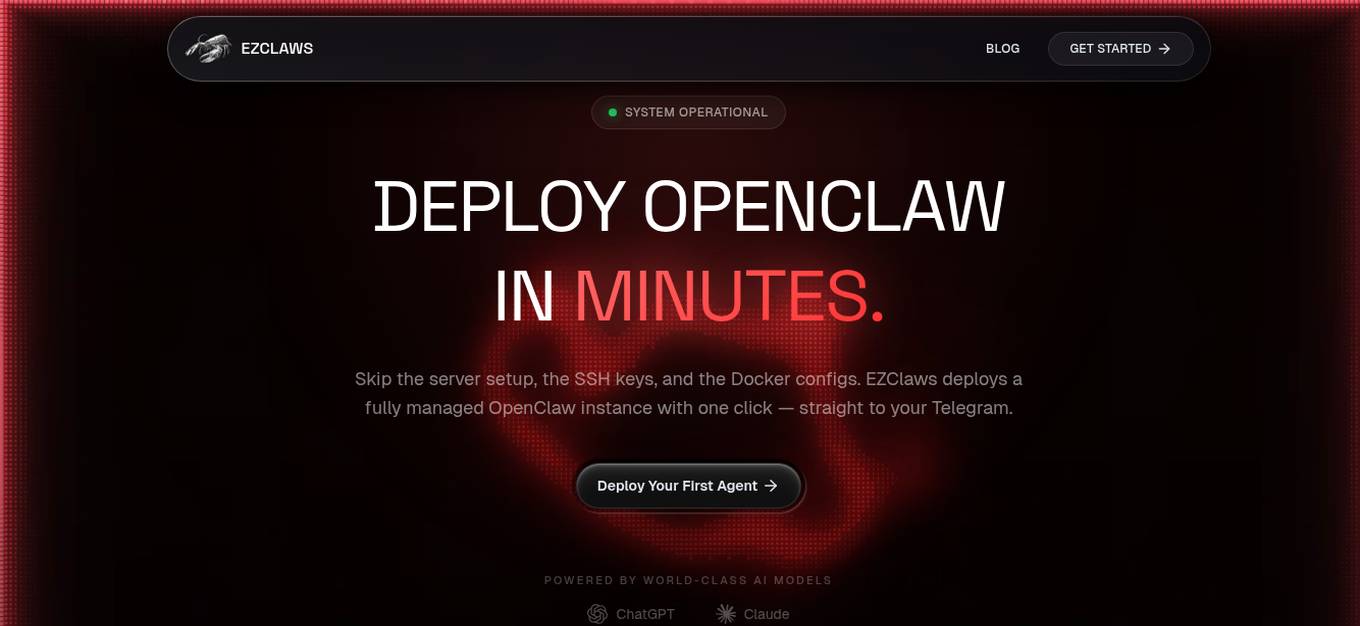
EZClaws
EZClaws is an AI tool designed for one-click OpenClaw hosting, allowing users to deploy and manage OpenClaw instances with ease. It offers a fully managed platform for hosting AI agents, powered by world-class AI models like GPT-4 and Claude. EZClaws simplifies the deployment process by handling server setup, SSH keys, Docker configs, and more, all through a user-friendly interface. With features such as automated provisioning, isolated and encrypted environments, built-in usage tracking, and quick deployment times, EZClaws streamlines the hosting experience for AI enthusiasts and developers.
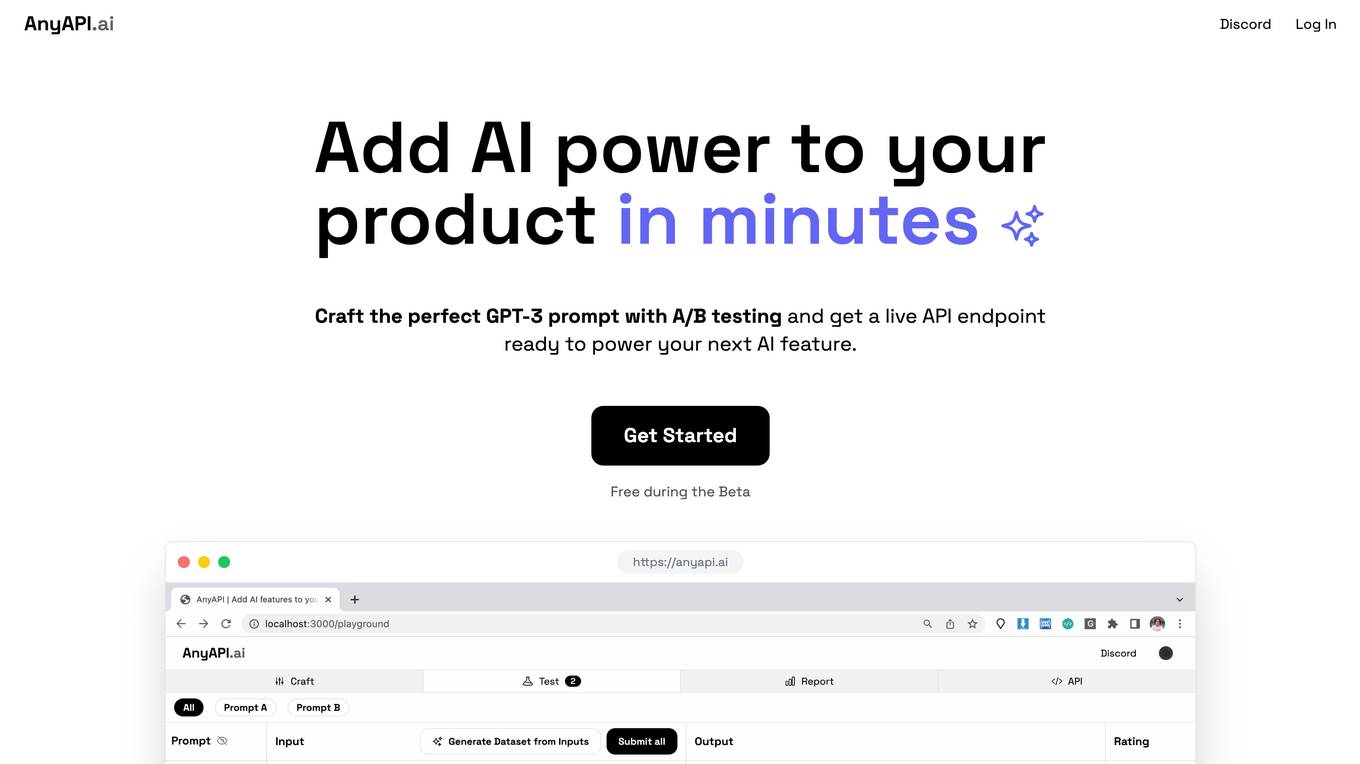
AnyAPI
AnyAPI is an AI tool that allows users to easily add AI features to their products in minutes. With the ability to craft the perfect GPT-3 prompt using A/B testing, users can quickly generate a live API endpoint to power their next AI feature. The platform offers a range of use cases, including turning emails into tasks, suggesting replies, and accessing plain text JSON. AnyAPI is designed to streamline the integration of AI capabilities into various products and services, offering a user-friendly experience for developers and businesses alike.
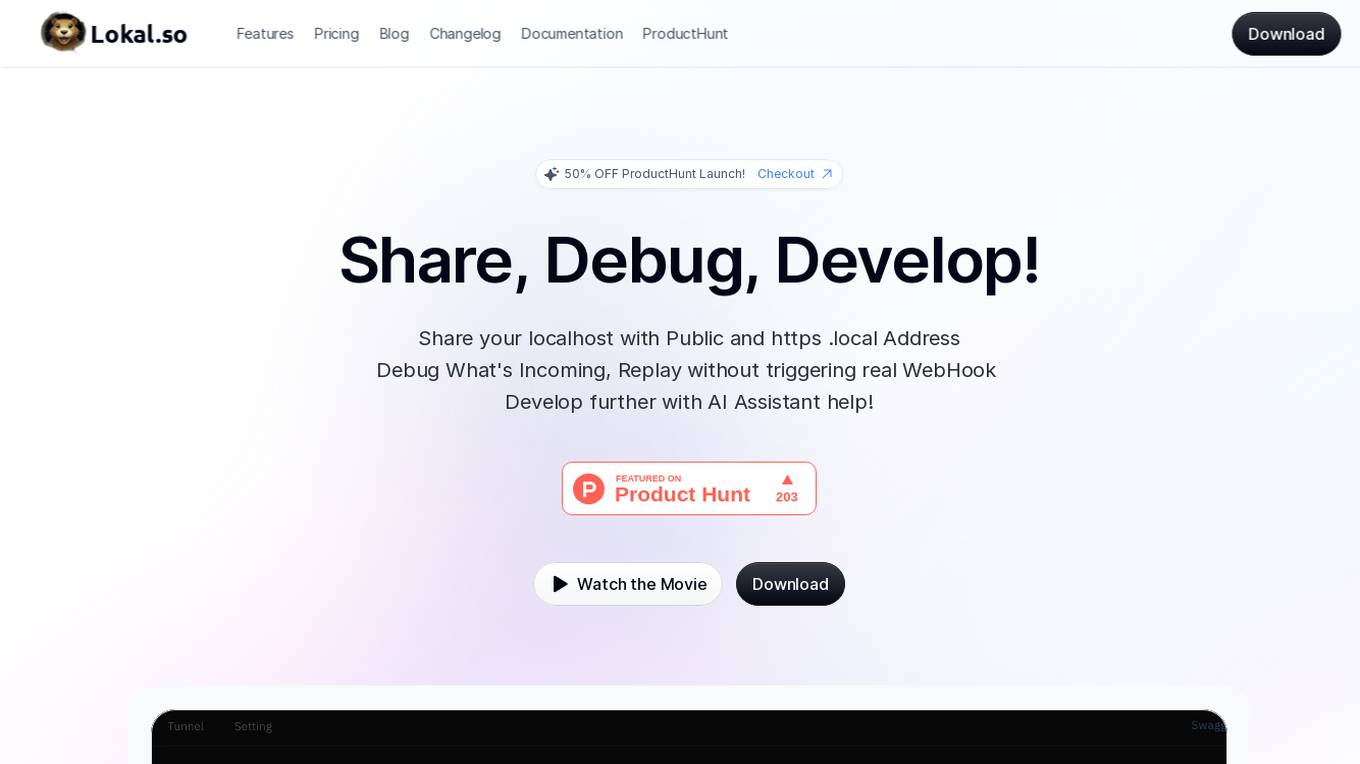
Lokal.so
Lokal.so is an AI-powered tool designed to supercharge your localhost development experience. It offers features like sharing your localhost with the public, debugging incoming requests, and developing with the assistance of an AI assistant. With Lokal.so, you can leverage Cloudflare's network for faster site delivery, use a built-in S3 server for easy file debugging, and automatically convert JSON payloads into different programming language models. The tool aims to simplify local development by providing a self-hosted tunnel server, unlimited .local domain access, and endpoint management with memorable names.
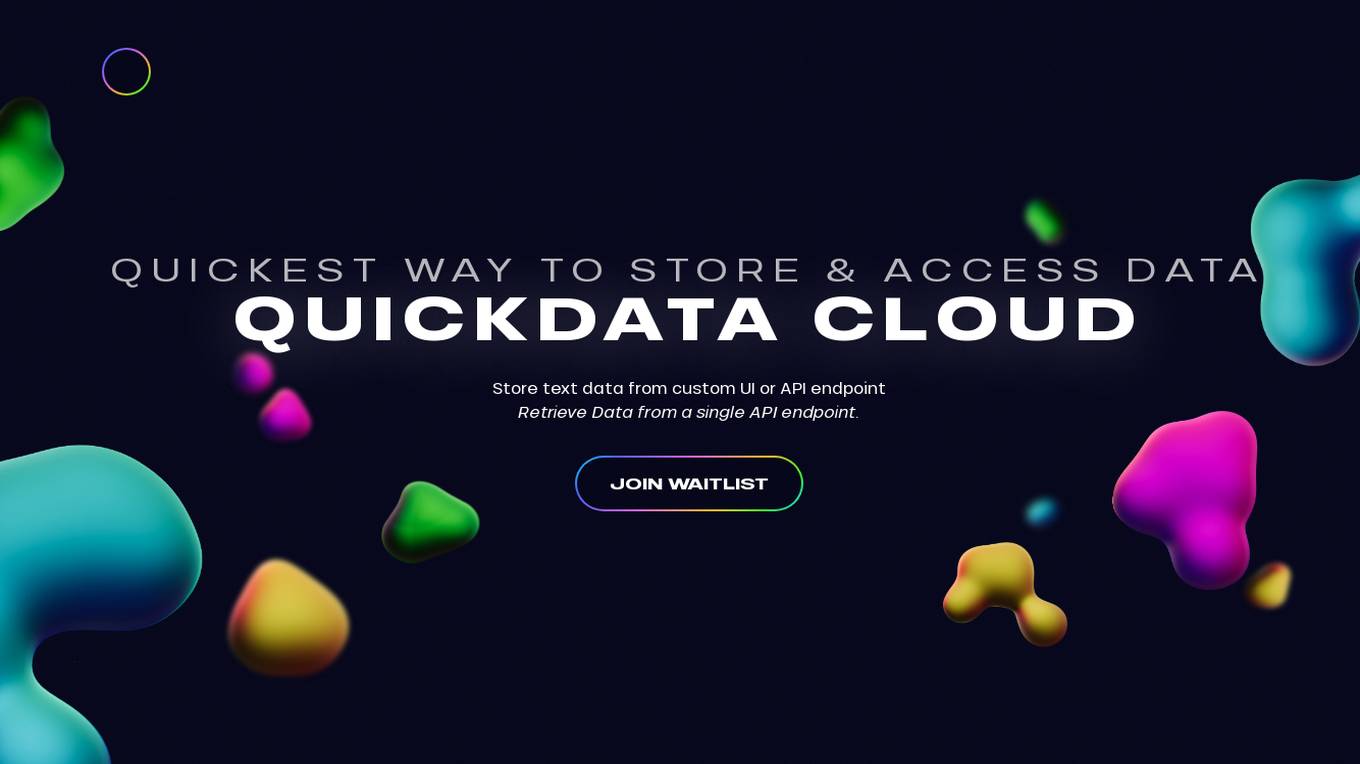
QuickData Cloud
QuickData Cloud is an innovative platform designed to simplify collaboration on online notes and text data storage. It empowers users to store, manage, and retrieve text data effortlessly through a single API endpoint, providing real-time access to information. QuickData Cloud is the simplest and fastest method to collaborate and maintain continuity in data handling, ensuring data is accessible, secure, and easy to manage. With a focus on no-code developers, it offers storage of text, comments, JSON, and databases, along with upcoming AI features for data analysis.
0 - Open Source Tools
4 - OpenAI Gpts
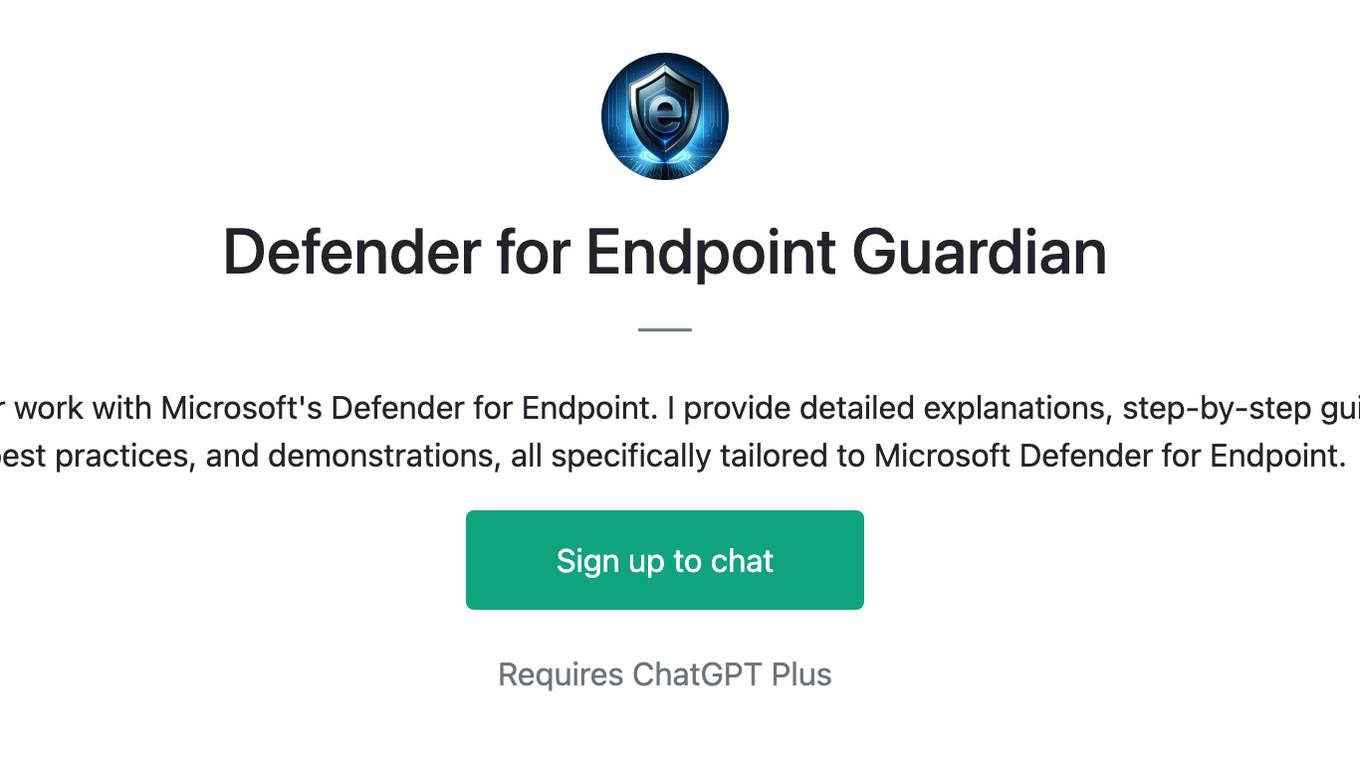
Defender for Endpoint Guardian
To assist individuals seeking to learn about or work with Microsoft's Defender for Endpoint. I provide detailed explanations, step-by-step guides, troubleshooting advice, cybersecurity best practices, and demonstrations, all specifically tailored to Microsoft Defender for Endpoint.
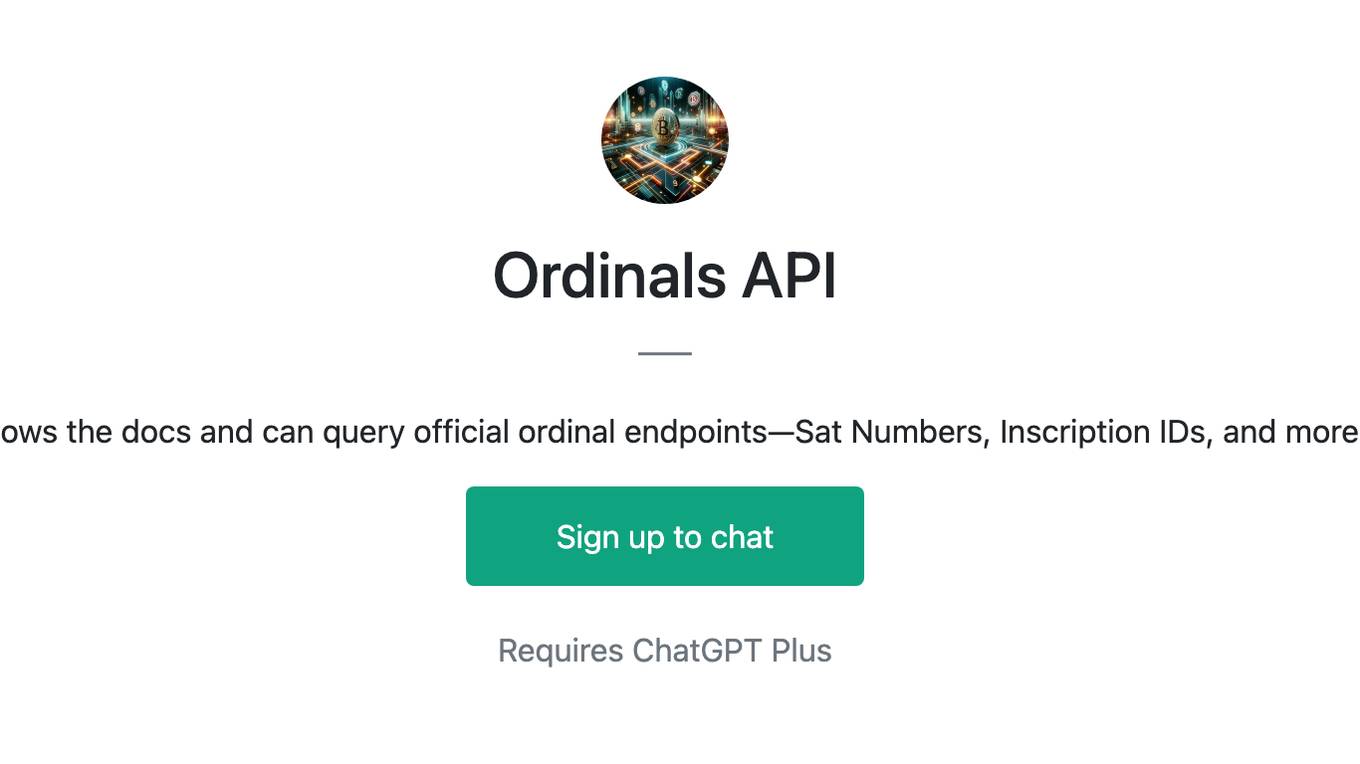
Ordinals API
Knows the docs and can query official ordinal endpoints—Sat Numbers, Inscription IDs, and more.
